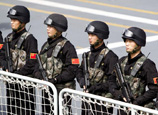
"We are not going to go back to the past decade known as the golden age of China-EU trade integration, because there will be intensified competition in areas where Europe thinks it traditionally has the comparative advantage over China," Erixon said.
When China catches up in the high-tech and capital-intensive sectors, Europe is likely to act defensively in its approach to Chinese businesses, he noted.
"We are even going to see more political remedies to what Europe believes is unfair competition."
To overcome that tension, Erixon suggested both sides roll out market reforms, with China liberalizing more sectors, getting away from its high level of reliance on State-owned enterprises, and giving domestic companies greater access to capital markets.
Europe, on the other hand, should embark on reforming its welfare system by increasing incentives and pressures on people to work, he said. At the same time it should liberalize its currently highly regulated services sector.
"These efforts should combine with a change in the tax system which favors more investment and much better allocation of capital in Europe," he added.















 Sex case leads to warnings about apps on smartphones
Sex case leads to warnings about apps on smartphones


![]()
